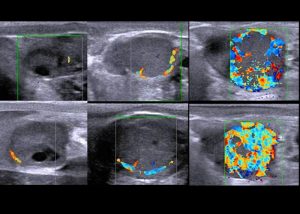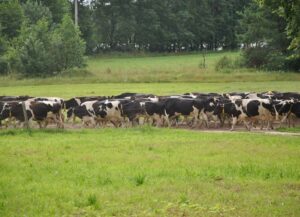Fernando Diaz
Genomic selection has revolutionized dairy cattle breeding. The development of highthroughput genotyping methods along with reduced genotyping cost has made the application of genomic selection very popular. Genomic testing of female animals in dairy farms is an effective way to identify replacement heifers to increase the genetic merit and profitability of the herd.
Using genomic data from 7,508 genotyped animals (158 sires and 7,350 cows) registered with Holstein de Méjico, INIFAP researchers (García-Ruiz et al., 2019) from the Centro Nacional de Investigación en Fisiología y Mejoramiento Animal (Querétaro, México) determined the accuracy of pedigree information in the Mexican registered Holstein population. Animal were born from 2002 through 2014 and genotyped with single nucleotide polymorphism (SNPs) arrays of different densities (200 – 777,000 SNPs).
Because the Mexican Holstein population is largely derived genetically from US and Canadian Holstein populations, genomic data from US Holstein cattle was used for the Mexican Holstein parentage verification program. However, the Mexican Holstein population has also received genetic material from Italy, France, England, Spain, New Zealand, and other countries. For this reason, 17 and 12% of sires of cows and bulls of the animals included in the study, respectively, did not have a parent genotype available for parentage validation.
Surprisingly, of the 7,795 parentage tests, the researchers found that 777 were conflicts, representing 10% rate of parental recording errors for genomic tested animals. For bulls, parenting verification error rates were 5% for sires and 3% for dams. Cow sire and dam parental errors were detected in 11% and 8% of the animals, respectively. These error rates were similar to those recently reported in Germany (7%), Ireland (7 – 9%), the USA (11%), and Israel (12%).
In conclusion, this study shows that parenting verification errors are common in the dairy industry. They have negative effects on genetic selection and improvement, producing losses in genetic gain. These errors in recording of parents can occur at the dairy farm (breeding, calving), at the artificial insemination center, and genotyping laboratories.
Reference
García-Ruiz, G. R. Wiggans, and F. J. Ruiz-López. 2019. Pedigree verification and parentage assignment using genomic information in the Mexican Holstein population. J. Dairy Sci. 102:1806–1810.
© 2019 Dairy Knowledge Center, LLC. All Rights Reserved.











